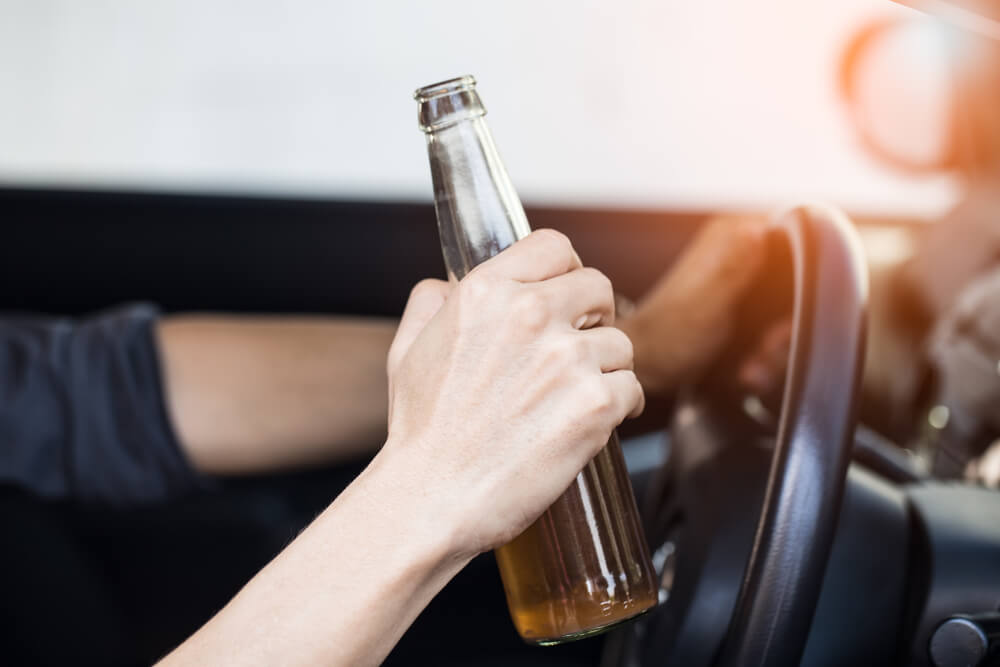It is no secret that getting a driving under the influence (DUI) citation is bad news and can have even worse repercussions than you can imagine. Not only can it lead to a night in jail, but it can also harm your reputation and raise your insurance rates. There are also other variations of drunk driving violations that can affect your insurance. Here is a look at how getting a DUI can impact your
auto insurance.
Expect Higher Rates with a DUI
You can count on your auto insurance rates going up substantially if you ever get a DUI. The average rate of increase following a drunk driving citation is 94% among the 23-35 age group. That means if you pay $1,700 per year on auto coverage, you will be paying close to $3,300 after the DUI. These rates vary in different states, but one of the unifying factors of the United States is that it discourages and punishes drunk driving in every state on multiple levels.
Regardless of age, your rate will likely go up, although older drivers tend to pay lower overall insurance rates than drivers in their 20s and 30s. In the state of New York, the average insurance rate increase after a DUI is 41%, similar to neighboring state Pennsylvania at 40%. New Jersey, however, is much stricter as the average insurance rate increase is 106%. Connecticut boasts rate increases at 98% and Rhode Island at 100%.
The reason for the rate spike is drunk drivers become a higher risk to themselves and other drivers. Although getting a DUI does not imply a person will continue to drive while intoxicated, it becomes part of the motorist's driving record and insurance history and stands out as a derogatory mark.
Different Drunk Driving Offenses
Be aware that the term drunk driving is called by different names across the United States. Here are some of the most common terms used for drunk driving:
- DUI - Driving under the influence
- DWI - Driving while intoxicated
- OUI - Operating under the influence
- OVI - Operating vehicle intoxicated
- OMVI - Operating a motor vehicle impaired
These terms may apply to various types of intoxicants, including prescription drugs, cannabis, and other substances. In most places, being drunk is defined as having a blood-alcohol level of 0.08 or higher, except in Utah, where intoxication is considered 0.05 or higher. Getting convicted or pleading no contest in court officially documents the offense.
Insurance Cancellation After a DUI
Getting a DUI does not necessarily mean your insurance agency will cancel your policy. They may drop you as a customer if they discover you lied on your application or omitted a previous DUI. Another reason why insurers cut ties with policyholders is the lack of payment. If you pay your bills regularly and have filled out your application accurately, chances are slim they will cancel your policy due to a DUI conviction.
Requirements for DUI Auto Insurance
Once you are convicted of drunk driving, you will probably have to file an SR-22 form with your insurance agent or the state's insurance department. Some states call the form FR-44. These forms serve as documentation that proves the driver meets minimum insurance requirements concerning the level of risk they present.
Alternative Auto Insurance After a DUI
A DUI will stay on your insurance record for 7-10 years, and you likely won't get an insurance rate break for at least 3 years. Even if you do not see a rate hike right away, it will probably occur at the time of renewal. If your insurer raises your rate extremely high, you may want to compare prices with other agencies.
Each insurer has its own way of calculating insurance rates based on risks, which are evaluated differently by each agency. If you have multiple marks on your record, consider pursuing a nonstandard insurer or a state-controlled
auto insurance plan. These special plans are designed for high-risk drivers.
Less Bad Marks Means Better Insurance Rates
The number of drunk driving fatalities is much lower today than several decades ago. Traffic safety laws and drunk driving convictions have proven to be effective in reducing incidents. For example, in 1984, half of New York state traffic fatalities were related to alcohol, whereas by 2014, drunk driving accounted for
36% of NY traffic fatalities.
Each year, New York authorities deal with an estimated
1.7 million drivers involved in drinking and driving. Focus groups have shown that the overall perception of getting arrested for drunk driving in the state is low. Studies have further suggested that the state's penalties are lenient compared with other states. Yet, the state has reduced drunk driving fatalities by over 60% in the past quarter-century.
The good news for all drivers is you can get lower insurance rates over time by practicing good driving skills. Staying focused on safe driving at all times will help you achieve a clean driving record. This is the type of behavior that insurers want to see and reward with lower rates. Some drivers have successfully lowered car insurance rates by installing a telematics tracking device in their vehicle that monitors and evaluates driving behavior.
Keeping your
auto insurance rates low comes down to safe and responsible driving.
Contact us at
Kneller Insurance Agency to learn more about how to protect yourself with appropriate auto coverage.


